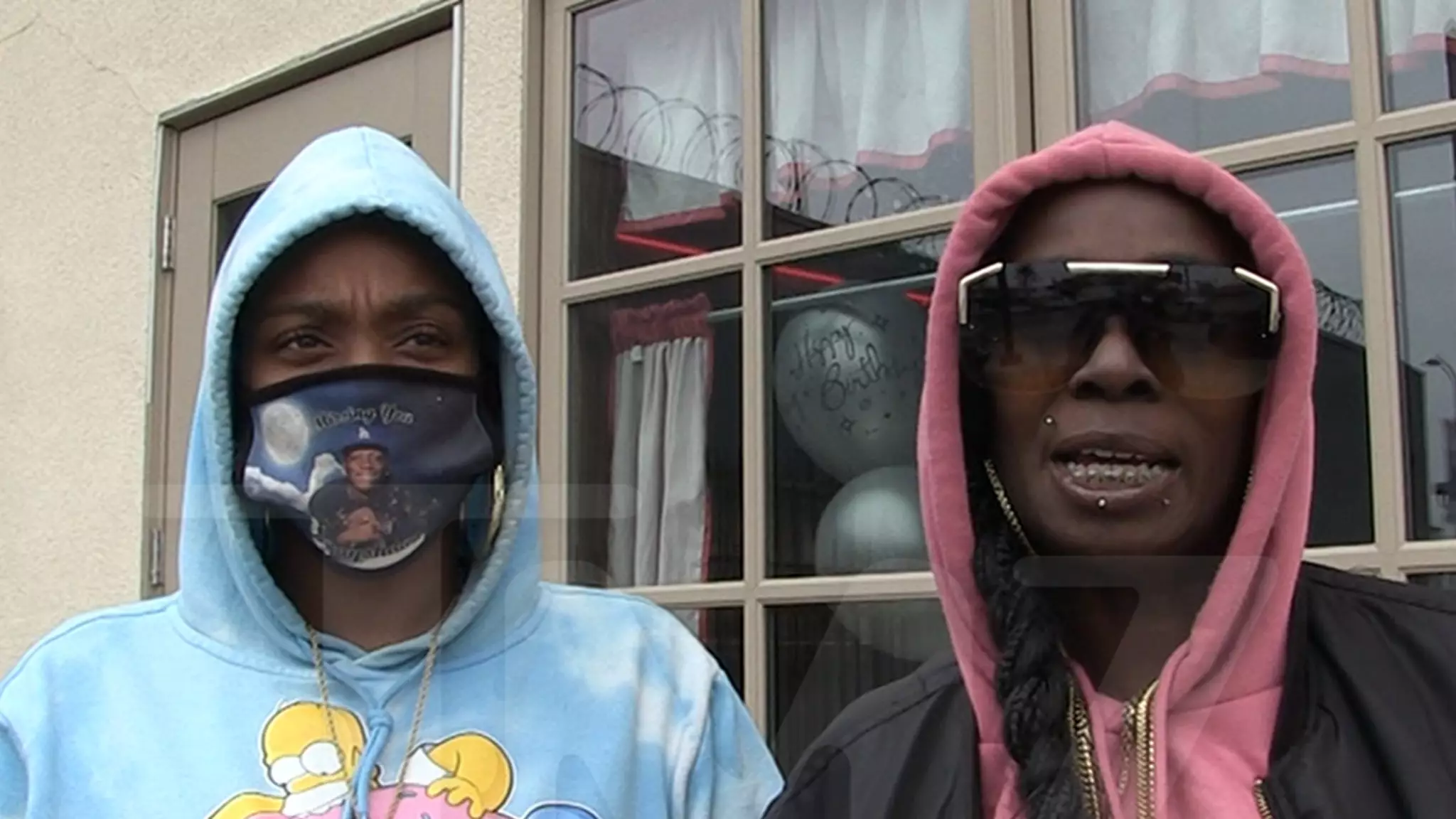The recent legal debacle involving Eugene “Big U” Henley Jr., a notorious gang leader, has raised critical questions about power dynamics, trust, and accountability within the urban music scene. Charged with the murder of Rayshawn Williams, a burgeoning artist with ties to his record label, Uneek Music, the case presents a disturbing narrative that intertwines ambition, betrayal, and the visceral reality of violent retribution. Williams, who had reportedly written a diss track aimed at Big U, was allegedly killed following a dispute during a Las Vegas encounter. The claim that his body was disposed of in the desert exemplifies a chilling disregard for human life, resonating deeply with themes of violence in hip-hop culture that often go unaddressed.
A Mother’s Heartbreak and Defiance
Shadonna Brown, Williams’ mother, has emerged as a vocal figure amidst this chaos, insisting that her motherly instincts were validated in her conviction of Big U’s involvement. Her emotional testimony reveals a profound sense of betrayal and loss, as she recounts her son’s aspirations and dreams contrasted starkly against the brutal reality of his demise. In her own words, Brown reveals, “a mother’s intuition” and emphasizes the heartbreak of losing her son to what she believes was an unjust and vindictive act. This personal account underscores the complexity of familial bonds and trust within communities that are often vulnerable to gang influences.
The Gangster Image and Its Repercussions
The implications of this case extend beyond personal tragedy, engaging with broader cultural discussions about the gangster persona that pervades hip-hop culture. How does the glorification of such figures contribute to real-world violence? The connection between artists and their influences, especially when one party feels slighted, can lead to devastating consequences. Big U’s alleged actions reflect not only personal betrayal but signal a deeper issue within the music space—where artistic freedom, loyalty, and life itself can become perilously entwined.
Community Reactions and Calls for Justice
The fallout from this case has rippled through the community, compelling individuals like Brown to take action in the face of adversity. Her decision to launch a GoFundMe to secure her and her family’s safety in light of perceived threats from their neighborhood speaks volumes. It reveals a community grappling with fear, yet also highlights resilience as they seek justice for lives lost. Brown’s outspoken grief challenges the silence often associated with violence, calling not just for accountability against Big U but for a systemic change in youth culture that routinely values street credibility over well-being.
The Weight of Accountability
Ultimately, this unfolding situation underscores critical questions about responsibility among influential figures within urban music. Brown’s resentment towards Big U is palpable; she laments having entrusted her son to an individual entangled in a web of illegal activities. As the legal proceedings develop, it remains crucial for the public to scrutinize the implications of toxic hierarchies within these environments. The need for a structural change in how communities, families, and artists interact with each other and the music industry becomes ever more urgent amid compelling tragedies such as the one experienced by Shadonna Brown and her family.

